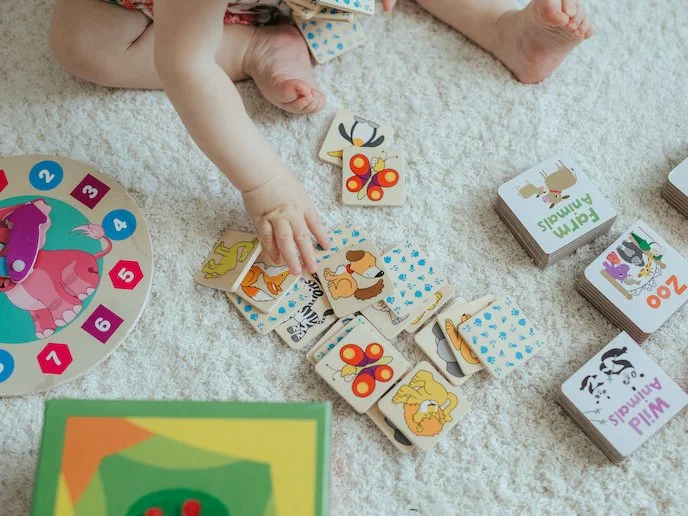What Animal Research Can Tell Us About Infant Brain Development
Written by Abigail O’ Connell.
Understanding how a baby’s brain develops—especially when exposed to harmful substances during pregnancy—is a major focus of scientific research. While studies involving humans give us valuable information, they often can’t answer every question due to ethical and practical limits. That’s where animal research becomes incredibly useful. By studying animals, scientists can learn more about how the brain forms in early life and how things like alcohol, tobacco, or newer substances like e-cigarette vapor might interfere with that process.
Why Study Infant Brain Development Through Animal Models?
Infant brain development is a dynamic process, influenced by genetics, environment, and prenatal exposures. During pregnancy, the fetal brain is especially vulnerable to outside influences (Banerjee et al., 2022). Animal studies allow researchers to control these variables in ways that would be impossible in human studies. This is particularly useful when investigating novel exposures, such as e-cigarettes, as we can monitor time and dosage throughout gestation while reducing potential confounding factors.
The Case of Alcohol: Learning From Animal Research
Perhaps the most well-known example of animal research informing human understanding is fetal alcohol spectrum disorders (FASD). Rodent studies in the 1970s demonstrated that exposing pregnant rats to alcohol led to offspring with growth deficiencies, cognitive delays, and abnormal brain structures—effects that closely mirrored symptoms later documented in children with prenatal alcohol exposure (Driscoll et al., 1990; Randall & Taylor, 1979).
These animal findings helped scientists understand how alcohol disrupts brain development, revealing that it interferes with neuronal migration, apoptosis (programmed cell death), and the development of the hippocampus, a region essential for memory. Human neuroimaging studies later confirmed similar brain structure changes in children with FASD (Lemoine et al., 2003).
Tobacco and Nicotine: The Impact Across Species
Nicotine, the addictive chemical in cigarettes, has also been widely studied in animals. Research shows that when animals are exposed to nicotine before birth, it can cause hyperactivity, attention problems, and changes in brain chemistry, especially in systems that control learning and memory.
These results echo findings in human populations: children born to mothers who smoked during pregnancy were more likely to have reduced birth weights and poorer cognitive, behavioural, and motor performance (Abrishamcar et al., 2022; Amos-Kroohs et al., 2013; Gaworksi et al., 2004). The parallels between animal and human studies strengthen our understanding of substance exposure and have helped shape public health campaigns advising against smoking during pregnancy.
The New Risk: Vaping and E-Cigarettes
While the risks of alcohol and tobacco are well-documented, e-cigarette use during pregnancy is still largely unexplored in human research. However, animal studies are beginning to fill this gap. For example, recent rodent studies show that prenatal exposure to e-cigarette aerosol can impair lung development, disrupt normal brain function, and alter neurotransmitter levels - despite the absence of many traditional cigarette toxins (Walayat et al., 2021).
This is especially concerning given the perception that vaping is a "safer" alternative. But in animal studies, even nicotine-containing e-cigarette vapor caused long-term behavioural and cognitive problems when exposure happened during key stages of brain development (Liu et al., 2019). These findings raise concerns about the safety of vaping during pregnancy.
Looking Ahead: Why Animal Research Matters
One of the most powerful aspects of animal research is its predictive value. Findings in animal research often precede and inform human studies. In fact, before large-scale human research confirmed the risks of prenatal nicotine exposure, animal studies had already flagged the potential dangers (Slotkin et al., 1986).
With vaping becoming more common globally, animal research can help identify red flags early. This includes studying effects on brain regions involved in attention, self-control, and social behaviour—functions that might not show problems until later in childhood.
Ethical Considerations and the Human Relevance
While animal studies allow for more controlled experiments, they don’t replace human research. Instead, they complement it (Breit et al., 2022; Froggatt et al., 2020). By combining and comparing both animal and human literature, we can create a clearer picture of how early exposures shape brain development and help guide public health policies.
What Have We Learned?
The UCD Babylab recently reviewed all existing animal and human research to identify overlaps and gaps in the literature, as part of the ECHO Study. This review found that animal populations exposed to prenatal e-cigarette vapour had comparable long-term self-regulatory and motor deficits to cigarette-exposed animal and human populations (O' Connell et al., 2025).
This is the first step in understanding how exposure to e-cigarettes in pregnancy can impact infants long-term. The ECHO study strives to continue its research to enable expecting mothers to make informed choices about their health, and to promote public health policies.
Click here to read more about this review!
References
Abrishamcar, S., Chen, J., Feil, D., Kilanowski, A., Koen, N., Vanker, A., Wedderburn, C. J., Donald, K. A., Zar, H. J., Stein, D. J., & Huls, A. (2022). DNA methylation as a potential mediator of the association between prenatal tobacco and alcohol exposure and child neurodevelopment in a South African birth cohort. Transl Psychiatry, 12(1), 418. https://doi.org/10.1038/s41398-022-02195-3
Amos-Kroohs, R. M., Williams, M. T., Braun, A. A., Graham, D. L., Webb, C. L., Birtles, T. S., Greene, R. M., Vorhees, C. V., & Pisano, M. M. (2013). Neurobehavioral phenotype of C57BL/6J mice prenatally and neonatally exposed to cigarette smoke. Neurotoxicol Teratol, 35, 34-45. https://doi.org/10.1016/j.ntt.2013.01.001
Banerjee, S., Deacon, A., Suter, M. A., & Aagaard, K. M. (2022). Understanding the Placental Biology of Tobacco Smoke, Nicotine, and Marijuana (THC) Exposures During Pregnancy. Clinical Obstetrics and Gynecology, 65, 347-359. https://doi.org/10.1097/GRF.0000000000000691
Breit, K. R., Rodriguez, C. G., Lei, A., Hussain, S., & Thomas, J. D. (2022). Effects of prenatal alcohol and delta‐9‐tetrahydrocannabinol exposure via electronic cigarettes on motor development. Alcoholism: Clinical & Experimental Research, 46(8), 1408-1422. https://doi.org/10.1111/acer.14892
Driscoll, C. D., Streissguth, A. P., & Riley, E. P. (1990). Prenatal alcohol exposure: comparability of effects in humans and animal models. Neurotoxicology and Teratology, 12, 231-237.
Froggatt, S., Reissland, N., & Covey, J. (2020). The effects of prenatal cigarette and e-cigarette exposure on infant neurobehaviour: A comparison to a control group. EClinicalMedicine, 28, 100602. https://doi.org/10.1016/j.eclinm.2020.100602
Gaworksi, C. L., Carmines, E. L., Faqi, A. S., & Rajendran, N. (2004). In Utero and Lactaction Exposure of Rats to 1R4F Reference Cigarette Mainstream Smoke Effect on Prenatal and Postnatal Development. Toxicological Sciences, 79, 157-169. https://doi.org/10.1093/toxs/kfh083
Lemoine, P., Harousseau, H., Borteyru, J. P., & Menuet, J. C. (2003). Children of alcoholic parents—observed anomalies: discussion of 127 cases. Therapeutic Drug Monitoring, 25, 132-136.
Liu, B., Xu, G., Rong, S., Santillan, D., Snetselaar, L. G., & Bao, W. (2019). National estimates of e-cigarette use among pregnant and nonpregnant women of reproductive age in the United States. JAMA Pediatrics, 173(6), 600-602. https://doi.org/10.1001/jamapediatrics.2019.0658
O' Connell, A., Rogers, R., Healy, E. C., Shaikhyousef, M., Regan, C., Douglass, A., Doolan, A., Fitzpatrick, P., Cox, D. W., & Downes, M. (2025). Vaping and Smoking in Pregnancy-A Meta-Analysis of Neurobehavioural Development in Prenatally Exposed Offspring. Acta Paediatrica. https://doi.org/10.1111/apa.70285
Randall, C. L., & Taylor, W. J. (1979). Prenatal ethanol exposure in mice: teratogenic effects. Teratology, 19, 305-311.
Slotkin, T. A., Greer, N., Faust, J., Cho, H., & J. Seidler, F. (1986). Effects of maternal nicotine injections on brain development in the rat: Ornithine decarboxylase activity, nucleic acids and proteins in discrete brain regions [Article]. Brain Research Bulletin, 17(1), 41-50. https://doi.org/10.1016/0361-9230(86)90159-0
Walayat, A., Li, Y., Zhang, Y., Fu, Y., Liu, B., Shao, X. M., Zhang, L., & Xiao, D. (2021). Fetal e-cigarette exposure programs a neonatal brain hypoxic-ischemic sensitive phenotype via altering DNA methylation patterns and autophagy signaling pathway. American Journal of Physiology, 321(5), R791-R801. https://doi.org/10.1152/ajpregu.00207.2021



